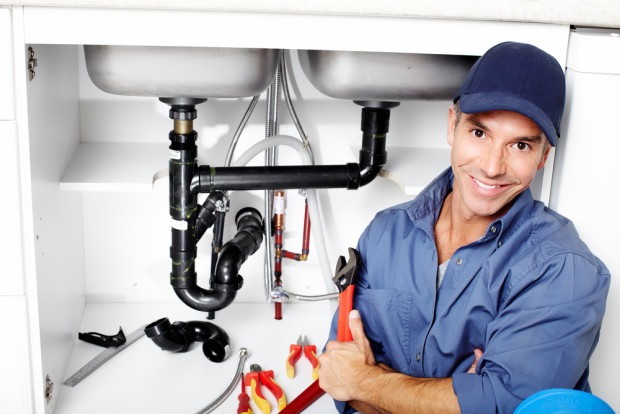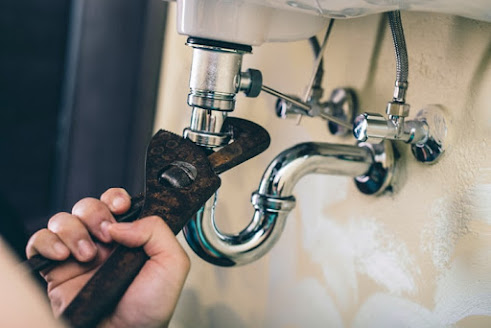Plumbing Noises You Should Learn about
Plumbing Noises You Should Learn about
Blog Article
We've uncovered this article pertaining to Why Your Water Pipes Are Noisy and How To Shut Them Up below on the internet and think it made good sense to write about it with you in this article.

To identify noisy plumbing, it is necessary to figure out very first whether the unwanted audios happen on the system's inlet side-in other words, when water is transformed on-or on the drain side. Sounds on the inlet side have actually varied reasons: extreme water pressure, used valve and also tap parts, poorly linked pumps or various other home appliances, incorrectly positioned pipe bolts, as well as plumbing runs containing way too many tight bends or various other limitations. Noises on the drainpipe side usually originate from poor area or, just like some inlet side sound, a design containing limited bends.
Hissing
Hissing noise that happens when a faucet is opened somewhat generally signals extreme water pressure. Consult your regional water company if you presume this problem; it will certainly have the ability to tell you the water stress in your area and also can install a pressurereducing shutoff on the incoming water system pipe if needed.
Various Other Inlet Side Noises
Creaking, squealing, scratching, breaking, and tapping generally are brought on by the expansion or tightening of pipelines, typically copper ones providing hot water. The noises take place as the pipelines slide against loosened fasteners or strike close-by house framework. You can often identify the location of the issue if the pipes are subjected; simply adhere to the noise when the pipelines are making noise. Most likely you will certainly discover a loose pipeline hanger or a location where pipes lie so near floor joists or other mounting items that they clatter against them. Affixing foam pipe insulation around the pipes at the point of call should correct the problem. Make sure bands and wall mounts are safe and also provide sufficient support. Where feasible, pipeline bolts should be connected to large architectural elements such as foundation walls rather than to mounting; doing so decreases the transmission of resonances from plumbing to surfaces that can amplify as well as transfer them. If connecting bolts to framework is inescapable, cover pipes with insulation or other resilient material where they call bolts, and also sandwich the ends of new fasteners between rubber washers when installing them.
Remedying plumbing runs that struggle with flow-restricting tight or countless bends is a last resort that ought to be embarked on just after consulting a skilled plumbing professional. Regrettably, this circumstance is relatively usual in older residences that might not have actually been constructed with indoor plumbing or that have seen several remodels, especially by novices.
Chattering or Shrieking
Extreme chattering or shrieking that happens when a shutoff or tap is activated, which generally goes away when the installation is opened totally, signals loosened or malfunctioning inner components. The remedy is to change the shutoff or tap with a brand-new one.
Pumps and also home appliances such as washing machines and dish washers can move electric motor noise to pipes if they are poorly attached. Connect such items to plumbing with plastic or rubber hoses-never rigid pipe-to isolate them.
Drain Sound
On the drain side of plumbing, the chief objectives are to remove surfaces that can be struck by falling or hurrying water and also to protect pipes to contain inescapable noises.
In new construction, bath tubs, shower stalls, bathrooms, and wallmounted sinks and also containers ought to be set on or against resistant underlayments to decrease the transmission of sound via them. Water-saving bathrooms and taps are much less noisy than standard designs; install them as opposed to older types even if codes in your area still allow utilizing older components.
Drains that do not run vertically to the cellar or that branch into horizontal pipeline runs sustained at flooring joists or other mounting existing especially troublesome sound issues. Such pipes are large sufficient to radiate considerable resonance; they likewise carry substantial quantities of water, which makes the scenario even worse. In new building and construction, define cast-iron soil pipelines (the big pipes that drain commodes) if you can manage them. Their massiveness has much of the sound made by water travelling through them. Also, stay clear of directing drainpipes in wall surfaces shown rooms as well as areas where people collect. Walls consisting of drainpipes ought to be soundproofed as was defined earlier, making use of double panels of sound-insulating fiber board as well as wallboard. Pipelines themselves can be covered with special fiberglass insulation created the purpose; such pipes have a resistant vinyl skin (often containing lead). Results are not constantly acceptable.
Thudding
Thudding sound, often accompanied by trembling pipelines, when a faucet or home appliance shutoff is turned off is a condition called water hammer. The sound and also vibration are triggered by the resounding wave of pressure in the water, which unexpectedly has no area to go. Sometimes opening a valve that releases water promptly into an area of piping containing a limitation, joint, or tee fitting can create the very same condition.
Water hammer can normally be cured by setting up installations called air chambers or shock absorbers in the plumbing to which the problem valves or faucets are linked. These gadgets permit the shock wave created by the halted flow of water to dissipate airborne they contain, which (unlike water) is compressible.
Older plumbing systems may have brief upright sections of capped pipe behind walls on tap competes the very same objective; these can eventually fill with water, decreasing or ruining their performance. The treatment is to drain pipes the water supply completely by shutting down the major water shutoff and opening all faucets. Then open the main supply valve as well as close the faucets one by one, beginning with the tap nearest the shutoff as well as finishing with the one farthest away.
WHY IS MY PLUMBING MAKING SO MUCH NOISE?
This noise indeed sounds like someone is banging a hammer against your pipes! It happens when a faucet is opened, allowed to run for a bit, then quickly shut — causing the rushing water to slam against the shut-off valve.
To remedy this, you’ll need to check and refill your air chamber. Air chambers are filled with — you guessed it — air and help absorb the shock of moving water (that comes to a sudden stop). Over time, these chambers can fill with water, making them less effective.
You’ll want to turn off your home’s water supply, then open ALL faucets (from the bathroom sink to outdoor hose bib) to drain your pipes. Then, turn the water back on and hopefully the noise stops! If you’re still hearing the sound, give us a call to examine further.
Whistles
Whistling sounds can be frustrating, as sometimes the source isn’t easily identified. However, if you can pinpoint which faucet or valve that may be the cause, you’ll likely encounter a worn gasket or washer — an easy fix if you replace the worn parts!Whistling sounds from elsewhere can mean a number of things — from high water pressure to mineral deposits. Your best plan of attack here is to give our plumbing experts a call. We’ll be able to determine where the noise is coming from and what the cause may be, then recommend an effective fix!
Cracks or Ticks
Cracking or ticking typically comes from hot water going through cold, copper pipes. This causes the copper to expand resulting in a cracking or ticking sound. Once the pipes stop expanding, the noise should stop as well.
Pro tip: you may want to lower the temperature of your water heater to see if that helps lessen the sound, or wrapping the pipe in insulation can also help muffle the noise.
Bangs
Bangs typically come from water pressure that’s too high. To test for high water pressure, get a pressure gauge and attach it to your faucet. Water pressure should be no higher than 80 psi (pounds per square inch) and also no lower than 40 psi. If you find a number greater than 80 psi, then you’ve found your problem!
Next step is to give us a call in order to install a pressure regulator. Trust us, you don’t want to wait to resolve this issue. Not only is the sound annoying, but high water pressure can be destructive to your home — including damaging certain appliances, like your washer and dishwasher.
Dripping
You might be accustom to the slow quiet drip your kitchen faucet makes. You might have even tuned out your bathroom sink dripping and drabbing all day long — but it’s time to find its cause.
A slow drip could signify a variety of easy to fix issues, such as a worn out O ring, or loose part. And by ignoring the drip, you could be wasting up to 2,000 gallons of water a year! So start conserving water — get it looked at ASAP.
https://www.pwessig.com/blog/2018/december/why-is-my-plumbing-making-so-much-noise-/

I'm certainly very interested in Why Do My Pipes Make Noises and I really hope you enjoyed reading our blog posting. Make sure you set aside a second to promote this blog entry if you enjoyed reading it. Thank you for your time invested reading it.
More Details Report this page